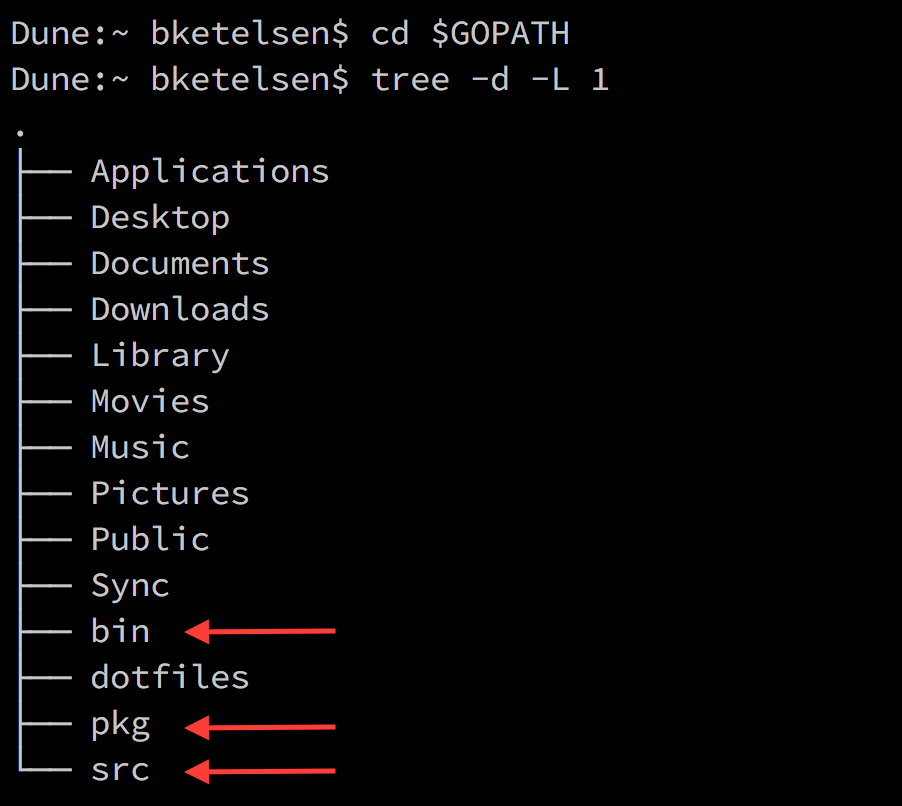Go has built-in types that aren't surprising.
uint8 the set of all unsigned 8-bit integers (0 to 255)
uint16 the set of all unsigned 16-bit integers (0 to 65535)
uint32 the set of all unsigned 32-bit integers (0 to 4294967295)
uint64 the set of all unsigned 64-bit integers (0 to 18446744073709551615)
int8 the set of all signed 8-bit integers (-128 to 127)
int16 the set of all signed 16-bit integers (-32768 to 32767)
int32 the set of all signed 32-bit integers (-2147483648 to 2147483647)
int64 the set of all signed 64-bit integers (-9223372036854775808 to 9223372036854775807)
float32 the set of all IEEE-754 32-bit floating-point numbers
float64 the set of all IEEE-754 64-bit floating-point numbers
complex64 the set of all complex numbers with float32 real and imaginary parts
complex128 the set of all complex numbers with float64 real and imaginary parts
byte alias for uint8
rune alias for int32
Implementation specific types. (64 bit size on 64 bit platform, 32 bit on 32 bit platform)
uint either 32 or 64 bits
int same size as uint
uintptr an unsigned integer large enough to store the uninterpreted bits of a pointer value
string and bool
string the set of string values
bool a boolean (true/false) value
Without initialization
cd $GOPATH/src/github.com/thewondertwins/learngo/material/syntaxtypes/demos/withoutinit
go run main.go
With initialization, explicit type
cd $GOPATH/src/github.com/thewondertwins/learngo/material/syntaxtypes/demos/explicit
go run main.go
With initialization, implicit type
cd $GOPATH/src/github.com/thewondertwins/learngo/material/syntaxtypes/demos/implicit
go run main.go
All three produce an integer that is indistinguishable from the others. With the implicit declaration, the compiler determines the type of the variable at compile time (not run time).
All builtin types have a zero value. Any allocated variable is usable even if it never has a value assigned.
cd $GOPATH/src/github.com/thewondertwins/learngo/material/syntaxtypes/demos/zero
go run main.go
Constants are variables that can't be modified at run time.
cd $GOPATH/src/github.com/thewondertwins/learngo/material/syntaxtypes/demos/constantstring
go run main.go
cd $GOPATH/src/github.com/thewondertwins/learngo/material/syntaxtypes/demos/constantnumber
go run main.go
Modifying Constants Example - Fail!
cd $GOPATH/src/github.com/thewondertwins/learngo/material/syntaxtypes/demos/modifyconst
go run main.go
Sometimes you want to declare constants that follow a sequence:
cd $GOPATH/src/github.com/thewondertwins/learngo/material/syntaxtypes/demos/sequence
go run main.go
That's sort of ugly. Go gives us a compile time helper called iota that lets you skip the repetition:
Sequence with Iota
cd $GOPATH/src/github.com/thewondertwins/learngo/material/syntaxtypes/demos/iota
go run main.go
Notice the difference between the two versions? Iota always starts at 0.
Skip the first value of iota
cd $GOPATH/src/github.com/thewondertwins/learngo/material/syntaxtypes/demos/iotaskip
go run main.go
A struct is a collection of fields.
Structs are types with zero or more fields.
Struct Example:
cd $GOPATH/src/github.com/thewondertwins/learngo/material/syntaxtypes/demos/structs
go run main.go
Fields in a struct are called members. Reference them using a period and the field name.
Go code is organized in packages. A package represents all the files in a single directory on disk. One directory can contain only files from the same package.
You've seen this already several times. Our examples so far have all used package "main" declared at the top of the file.
Source files in a package must declare the package name at the top of the file as the first code statement:
// Package declaration
package main
Executable programs must have a "main" package that declares a main() function:
func main() { ... }
Library code must declare a package name that matches the folder name it lives in. Code in folder "server" has to declare "package server".
All variables and types declared inside a package are visible to everything else in the same package.
That means no "public" "private" "protected" modifiers.
External visibility is controlled by capitalization. Types and Functions that start with a capital letter are available outside the current package. Types and functions that start with a lower case letter are unexported, not available outside the current package.
We call this concept Exporting. A symbol that is visible outside its package is "exported".
When you installed Go earlier, you set a GOPATH environment variable in your shell.
A GOPATH is a workspace for one or more Go projects.
GOPATH is the root of the workspace and it contains three directories:
Your source code, and the code your applications depend on lives in "src".
When you build an application, it's placed in "bin".
When you compile any library, it's placed in "pkg", under a subdirectory for your computer's architecture. like pkg/darwin_amd64.
All of this is important because your GOPATH is what determines how the go compiler resolves your references to packages in code.
If your code lives at $GOPATH/src/blue/red, it's package name is "red" and you would import that code with the following statement:
import "blue/red"
We call "blue/red" the import path of the package.
Packages that live in source code repositories like github and bitbucket have the full location of the repository as part of their import path. A project in my github repository called "captainhook" has the import path:
"github.com/bketelsen/captainhook"
Therefore in order to use that package in your code, that package MUST live at:
$GOPATH/src/github.com/bketelsen/captainhook
If captainhook were a library instead of an executable, when it's compiled, the compiled version of the package would be placed at:
$GOPATH/pkg/darwin_amd64/github.com/bketelsen/captainhook
(Assuming you compiled it on a Mac)
The vast majority of developers will use one GOPATH, set it as an environment variable and forget about it.
However, it's possible to have "clean rooms" for different sets of projects or even an individual project by simply creating a new GOPATH and setting the environment variable to that new location.
Read the first half of the article here then do the exercises "Your First Program" and "Your First Library"
This article tells you to set GOPATH to $HOME/work... ignore that. DO NOT CHANGE THE GOPATH YOU HAVE ALREADY EXPORTED
